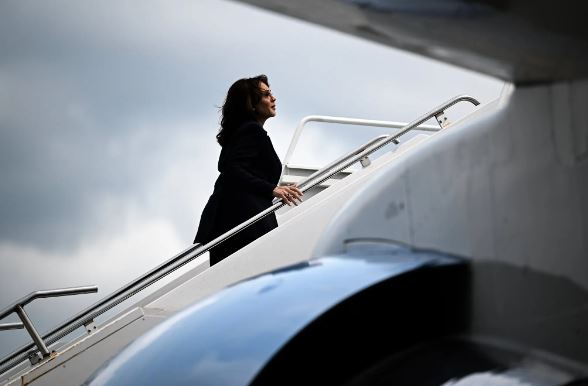The competitive and divisive primary that many Democrats hoped to avoid has nonetheless arrived, unfolding largely behind closed doors in a battle over the vice-presidential slot on Kamala Harris’s ticket.
In recent days, the final stage of the campaign to be Harris’s running mate has entered an ugly phase. Donors, interest groups, and political rivals from both the moderate and progressive wings of the Democratic Party have been lobbying for their preferred candidates and circulating memos critiquing the contenders’ political weaknesses with key demographics.
The sharpest attacks have targeted one of the leading candidates, Governor Josh Shapiro of Pennsylvania, who faces opposition from progressives and even a senator from his home state. The internal Democratic rift became evident as three top contenders—Shapiro, Senator Mark Kelly of Arizona, and Governor Tim Walz of Minnesota—met with Harris at her residence in Washington, D.C., on Sunday. Harris’s campaign has stated that a decision will be announced by Tuesday.
Kevin Munoz, a spokesman for the Harris campaign, declined to comment on the meetings. Harris is set to begin a campaign tour with her running mate this week, starting with a rally in Philadelphia on Tuesday night, where Shapiro is expected to attend, regardless of the final selection.
Progressive groups have focused their criticisms on Shapiro and Kelly, accusing them of being too conservative on key issues. Shawn Fain, president of the United Automobile Workers union, expressed concerns during a Sunday interview on CBS about Kelly’s commitment to pro-labor legislation and Shapiro’s support for school vouchers.
Major Democratic donors have indicated their willingness to support any of the finalists on Harris’s list, but significant divisions remain among the party’s biggest givers. A heated debate has unfolded in the Democracy Alliance email group, where left-wing donors have voiced their concerns about Shapiro. Similarly, the progressive activist email group Gamechanger Salon has opposed Shapiro, focusing on his stance on Israel’s military actions in Gaza. A contentious discussion in the group led to a rebranding of the email chain to “Why Josh Shapiro should not be the VP.” Members have also been encouraged to support Walz, who has gained favor among the party’s most liberal contributors, addressing about 60 of them on Friday.
The escalating attacks on Shapiro have drawn rebukes from party moderates and media figures. Joe Scarborough, host of MSNBC’s “Morning Joe,” defended the Pennsylvania governor on social media, condemning the recent attacks as a “toxic mix of antisemitism, extremist views on Gaza, and jealous colleagues.”
In the meantime, progressive donors have been actively promoting Walz as the ideal vice-presidential candidate. Democratic operatives, including Doran Schrantz from the Faith in Minnesota PAC, have circulated a memo titled “The Case for Tim Walz for Vice President,” aiming to influence Harris’s decision.
A similar memo advocating for Pete Buttigieg, the transportation secretary who headlined a Harris fundraiser in New Hampshire on Saturday, was distributed to Democrats, including major donors.
Shapiro has garnered support from the party’s pro-Israel donors, school-choice advocates, and business-friendly contributors in Silicon Valley. However, these centrist positions have made him less popular with the party’s most liberal funders.
Governor Andy Beshear of Kentucky has emerged as a potential compromise candidate, enjoying support from both liberal and centrist contributors. Over the past two weeks, Beshear has been auditioning before major donor groups, including an exclusive session on Friday evening.
Walz and Beshear are scheduled to appear at simultaneous fundraisers for Harris on Monday evening. Walz’s event in Minneapolis was sold out as of Sunday evening, while tickets remained available for Beshear’s event in Chicago. By then, Harris’s decision is likely to have been made.

